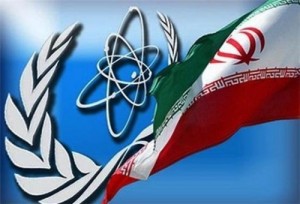 BRUSSELS/VIENNA, Jan 20 (Reuters) - World powers and�Iran�are due to start implementing a landmark deal on Monday curbing Tehran's nuclear programme, amid hopes that it will pave the way for a broad settlement of a decade-old standoff and ease fears of a new Middle East war.
BRUSSELS/VIENNA, Jan 20 (Reuters) - World powers and�Iran�are due to start implementing a landmark deal on Monday curbing Tehran's nuclear programme, amid hopes that it will pave the way for a broad settlement of a decade-old standoff and ease fears of a new Middle East war.If, as expected, the United Nations' nuclear watchdog confirms in the morning that�Iran�is meeting its end of the agreement, the European Union and the United States will later in the day suspend some economic sanctions in return.
The mutual concessions are scheduled to last six months, during which time six powers - the United States,�Russia,�China,�France, Britain and�Germany�- aim to negotiate a final accord defining the permissible scope of Iran's nuclear activity.
Western governments want such an agreement to lay to rest their concerns that Iran could produce an atomic weapon. Tehran is seeking an end to painful economic sanctions that have severely damaged its oil-dependent�economy.
The interim accord, struck on Nov. 24 after years of on-off diplomacy, marks the first time in a decade that Tehran has limited its nuclear work, which it says has no military goals, and the first time the West has eased economic pressure on Iran.
"It is an important agreement and I hope that this will now give us an opportunity to move forward and to look at a more comprehensive agreement shortly," EU foreign policy chief Catherine Ashton said.
Ashton coordinates diplomatic contacts with Iran on behalf of the six nations and plans to visit Tehran in the coming weeks as part of her effort to bring an end to the nuclear dispute.
Under the deal, Iran is obligated to suspend enrichment of uranium to a fissile concentration of 20 percent, a short technical step away from the level needed for nuclear weapons.
It also has to dilute or convert its pile of this higher-grade uranium, and cease work on the Arak heavy water reactor, which could provide plutonium for bombs.
In return, it will be able to retrieve $4.2 billion in oil revenues frozen in overseas accounts, and resume trade in petrochemicals, gold and other�precious metals.
The U.S. government estimates the value of sanctions relief in total at about $7 billion, although some diplomats say much will depend on the extent to which Western companies will now seek to re-enter the Iranian market.
Washington has made clear its view that it is premature for industry to start doing�businesswith Iran again, as most of the sanctions remain in place for now.
MIRED IN MISTRUST
The preliminary accord appeared to arrest a drift towards regional war during which the United States and Israel have both refused to rule out military action against Iranian nuclear sites if the matter cannot be resolved by diplomacy.
Western diplomats, as well as many independent nuclear experts, see it as an important first step that offers a rare chance to finally resolve the nuclear dispute.
Last year's election of a relative moderate, Hassan Rouhani, as Iranian president led to a thaw in ties with the West after years of confrontation and hostile rhetoric.
But Israel, which is believed to have the Middle East's only nuclear arsenal and views a nuclear-armed Iran as an existential threat, has branded the deal a historic mistake as it does not dismantle Tehran's uranium enrichment programme.
Its allies in the U.S. Congress have threatened to impose new sanctions on Iran, even though President Barack Obama has urged them to give diplomacy a chance.
Mark Dubowitz, head of the Foundation for Defense of Democracies in Washington and a proponent of tough sanctions on Iran, said that by providing economic relief, the West will lose future bargaining power.
"The interim deal does nothing over the next 12 months to prevent Iran from proceeding with the nuclear-weapon and ballistic-missile research that are the keys to a deliverable nuclear weapon," he said.
"Ahead of final negotiations, Tehran will be in a stronger position to block peaceful Western efforts to dismantle its military-nuclear programme."
The U.N. nuclear watchdog will play a key role in checking that Iran implements the deal, but its increased access still falls short of what it says it needs to investigate suspicions that Tehran may have worked on designing an atomic bomb.
It is also a far cry from the wide-ranging inspection powers the International Atomic Energy Agency (IAEA) had in Iraq in the 1990s to unearth and dismantle Saddam Hussein's clandestine nuclear programme after the first Gulf war.
"The accord gives the powers and Iran plenty of flexibility in going about reducing Iran's nuclear threat to a level the world will accept," said proliferation expert Mark Hibbs of the Carnegie Endowment think-tank.
"But it hasn't spelled out how they will work with the IAEA to resolve allegations that Iran has been working on nuclear weapons."
Reaching the final accord will mean overcoming decades of deep-seated mistrust between Iran and the West, and politicians on both sides have warned it will be hugely challenging.
By Reuters
The Iran Project is not responsible for the content of quoted articles.










